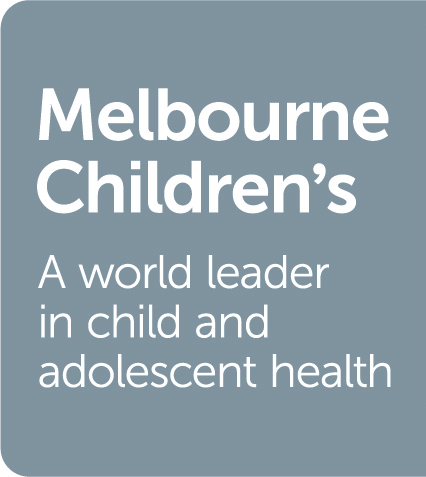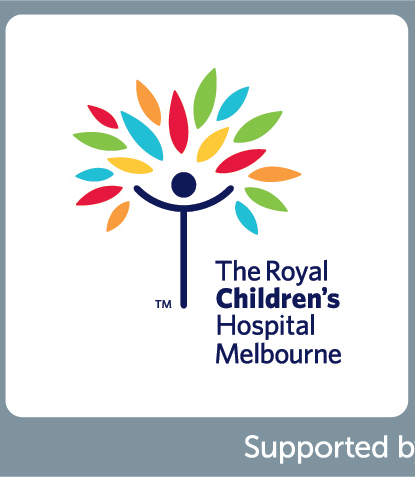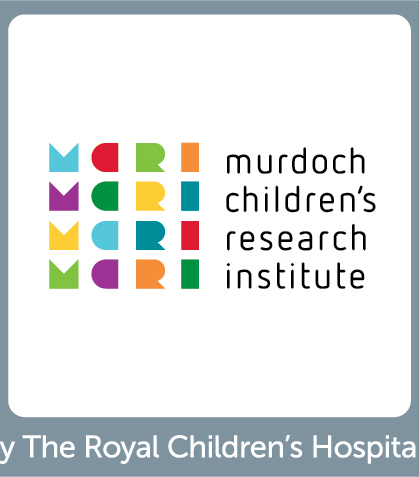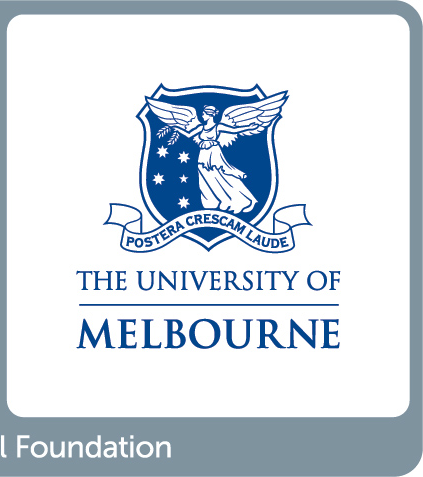Domain
Education and childcare
Constructs
- Access to technology at home
- Assessment of needs
- Child care arrangements
- Current education
- Educational achievement
- Educational assistance
- Engagement in community
- In higher education
- Institutional policy in place
- Level of educational attainment
- Literacy
- Playgroup
- Pre-school
- Reading
- School attendance
- School engagement
- School environment
- School functioning
- School teacher
- Teacher-student relationship
- Writing
Measures
- ABS-ASCED: Australian Bureau of Statistics Devised - Australian Standard Classification of Education
- AEDC: Australian Early Development Census
- AEDC-LCS: Australian Early Development Census - Language and Cognitive Skills
- ARQ-R: Adolescence Resilience Questionnaire: Revised
- ARQ-R-S: Adolescence Resilience Questionnaire: Revised - School
- ATAR: Australian Tertiary Admission Rank
- ATP-CAA: ATP devised - Civic Awareness and Activism Item set
- ATP-CC: ATP devised - Child Care Item set
- ATP-DEM: ATP devised - Demographics Item Set
- ATP-E: ATP devised - Education Item set
- ATP-EE: ATP devised - Education and Employment Item Set
- ATP-SF: ATP devised - School Functioning Item Set
- ATP-SP: ATP devised - School Problems Item Set
- ATSS: Attitudes to School Scale
- ATSS-A: Attitudes to School Scale - Achievement
- ATSS-M: Attitudes to School Scale - Motivation
- ATSS-O: Attitudes to School Scale - Opportunity
- ATSS-T: Attitudes to School Scale - Teachers
- BBB-C: Triple B devised - Childcare Item set
- BBB-ICT: Triple B devised - ICT Usage Item Set
- BBB-LNS: Triple B devised - Literacy and Numeracy Skills Item set
- BB-SCS: Beyond Blue School Climate Scale
- CASPE: COVID-19 Adolescent Symptom and Psychological Experience Questionnaire
- CASPE-A: COVID-19 Adolescent Symptom and Psychological Experience Questionnaire: Module A - Experience Related to COVID-19
- CC2: The Castles and Coltheart Test 2
- CELF-5: Clinical Evaluation of Language Fundamentals: Fifth Edition
- CELF-5-RC: Clinical Evaluation of Language Fundamentals: Fifth Edition - Reading Comprehension
- CELF-5-SW: Clinical Evaluation of Language Fundamentals: Fifth Edition - Structured Writing
- CELF-P2-PLRS: Clinical Evaluation of Language Fundamentals Preschool-2 - Pre-Literacy Rating Scale
- CRISIS: CoRonavIruS Health Impact Survey
- CRISIS-BG: CoRonavIruS Health Impact Survey - Background
- CSHCNS: Children with Special Health Care Needs screener
- DISC-IV-DM: Diagnostic Interview Schedule for Children: Version IV - Demographics Module
- ELVS-Ac: ELVS devised - Academic progression measure
- ELVS-AS: ELVS devised - Attitudes to School measure
- ELVS-CE: ELVS devised - Current Education measure
- ELVS-ELCE: ELVS devised - Early life Childcare and Education
- ELVS-R: ELVS devised - Reading measure
- ELVS-SA: ELVS devised - School Attendance measure
- ELVS-SI: ELVS devised - School Information measure
- ELVS-TCU: ELVS devised - Television and Computer Use measure
- ELVS-TSS: ELVS devised - Transition to Secondary School measure
- ELVS-Tu: ELVS devised - Tutoring measure
- ELVS-Wr: ELVS devised - Writing measure
- FTP-SA: Fast Track Project devised - School Adjustment Measure
- HACS: Home Adjustment to COVID-19 Scale
- HACS-SE: Home Adjustment to COVID-19 Scale - School and Education
- HACS-SEA: Home Adjustment to COVID-19 Scale - Social and Extracurricular Activities
- HACS-TSU: Home Adjustment to COVID-19 Scale - Treatment and Services Use
- HILDA-FLN: HILDA devised - Functional Literacy and Numeracy measure
- HOME: Home Observation for the Measurement of the Environment
- HOME-O: Home Observation for the Measurement of the Environment - Organization
- HOME-V: Home Observation for the Measurement of the Environment - Variety
- IYDS-SD: IYDS devised - School Discipline Item set
- IYDS-SI: IYDS devised - School Involvement Item set
- IYDS-SPA: IYDS devised - School Policy on Alcohol
- IYDS-SS: IYDS devised - Socialising and Sporting Item set
- IYDS-UCPA: IYDS devised - University or College Policy on Alcohol
- IYDS-WPA: IYDS devised - Work place Policy on Alcohol
- KDC: Kindergarten Development Check
- KDC-L: Kindergarten Development Check - Literacy and Numeracy
- L-25: Life at 25 Assessment
- LR-RC: Let's Read devised - Reading to Child Item set
- LSAC-ARS: LSAC devised - Academic Rating Scale
- LSAC-CH: LSAC devised - Child Health Item set
- LSAC-EL: LSAC devised - Early Language Item Set
- LSAC-ES: LSAC devised - Educational status measure
- LSAC-MU: LSAC devised - Media Use Item set
- LSAC-RCS: LSAC devised - Reading Competencies Scale
- LSAC-SC: LSAC devised - School and Childcare Item set
- MYPS-COVID: MYPS devised - COVID Experience measure
- NAPLAN: National Assessment Program – Literacy and Numeracy
- PedsQL 4.0 SF15: Pediatric Quality of Life Inventory – 4.0 SF15 Generic Core Scales
- PedsQL 4.0 SF15-ScF: Pediatric Quality of Life Inventory – 4.0 SF15 Generic Core Scales - School Functioning subscale
- PedsQL 4.0: Pediatric Quality of Life Inventory – 4.0 Generic Core Scales
- PedsQL 4.0-ScF: Pediatric Quality of Life Inventory – 4.0 Generic Core Scales - School Functioning subscale
- RelS: Relatedness Scale
- RelS-T: Relatedness Scale - Teacher
- REQ: Readiness and Expectations Questionnaire
- SBS: The School Bonding Scale
- SCARED: Screen for Child Anxiety Related Disorders
- SCARED-SA: Screen for Child Anxiety Related Disorders - School Avoidance
- SEAPART: School Entry Alphabetic and Phonological Awareness Readiness Test
- SeDQ: Self-Description Questionnaire
- SeDQ-R: Self-Description Questionnaire - Reading
- SeDQ-Sch: Self-Description Questionnaire - All School Subjects
- SLQ: School Life Questionnaire
- SLQ-GS: School Life Questionnaire - General Satisfaction
- SLQ-NA: School Life Questionnaire - Negative Affect
- SLQ-R: School Life Questionnaire - Relevance
- SLQ-T: School Life Questionnaire - Teachers
- SMU: Sizing Me Up measure
- SMU-SA: Sizing Me Up measure - Social Avoidance
- SPPC: Self-Perception Profile for Children
- SPPC-SchC: Self-Perception Profile for Children - Scholastic Competence
- SRI: Social Risk Index
- SRI-EPC: Social Risk Index - Education of Primary Caregiver
- SRQ: School Readiness Questionnaire
- SSCP-PR: SSCP devised - Peer Rewards Item set
- SSDP-AcF: SSDP devised - Academic Failure Item set
- SSDP-SC: SSDP devised - School Commitment Item set
- SSDP-SR: SSDP devised - School Rewards Item set
- SSIS: Social Skills Improvement System
- SSIS-AC: Social Skills Improvement System - Academic Competence
- SSRS: Social Skills Rating System
- SSRS-AC: Social Skills Rating System - Academic Competence
- START: Secondary Transition Adjustment Rating Tool
- STRS-SF: Student-Teacher Relationship Scale: Short Form
- STRS-SF-Cl: Student-Teacher Relationship Scale: Short Form - Closeness
- STRS-SF-Con: Student-Teacher Relationship Scale: Short Form - Conflict
- STU: Sizing Them Up measure
- STU-SF: Sizing Them Up measure - School Functioning
- SV-CE: Study Version - Current Education measure
- SV-EA: Study Version - Educational Attainment measure
- UWES-3S: Utrecht Work Engagement Scale (3-item student version)
- VAHCS-SE: VAHCS devised - School Environment measure
- VCAL: Victorian Certificate of Applied Learning
- VCE: Victorian Certificate of Education
- WIAT-III: Wechsler Individual Achievement Test, Third Edition
- WIAT-III-EC: Wechsler Individual Achievement Test, Third Edition - Essay Composition
- WIAT-III-ORF: Wechsler Individual Achievement Test, Third Edition - Oral Reading Fluency
- WIAT-III-PD: Wechsler Individual Achievement Test, Third Edition - Pseudoword Decoding
- W-MS: Walker-McConnell Scale of Social Competence and School
- W-MS-SA: Walker-McConnell Scale of Social Competence and School - School Adjustment Behaviour
- WRAT4: Wide Range Achievement Test 4
- WRAT4-WR: Wide Range Achievement Test 4 - Word Reading
- WRAT5: Wide Range Achievement Test 5
- WRAT5-WR: Wide Range Achievement Test 5 - Word Reading
- YES:MS: Youth Experiences Survey: Middle School
Appears in
- AQUA: Education and childcare
- ART-CHART: Education and childcare
- ART-IYAGS: Education and childcare
- ATP: Education and childcare
- ATPG3: Education and childcare
- Baby Biotics: Education and childcare
- BIS: Education and childcare
- CAP and NICAP: Education and childcare
- CATS: Education and childcare
- CheckPoint-LSAC: Education and childcare
- COBRA: Education and childcare
- COVID Immune: Education and childcare
- ELVS: Education and childcare
- GenV: Education and childcare
- HealthNuts: Education and childcare
- ICC: Education and childcare
- IYDS: Education and childcare
- Memory Maestros: Education and childcare
- MIS BAIR: Education and childcare
- MYPS: Education and childcare
- PETS: Education and childcare
- right@home: Education and childcare
- SchoolNuts: Education and childcare
- Triple B: Education and childcare
- VAHCS: Education and childcare
- VicCHILD: Education and childcare
- VIHCS: Education and childcare
- VITALITY: Education and childcare



